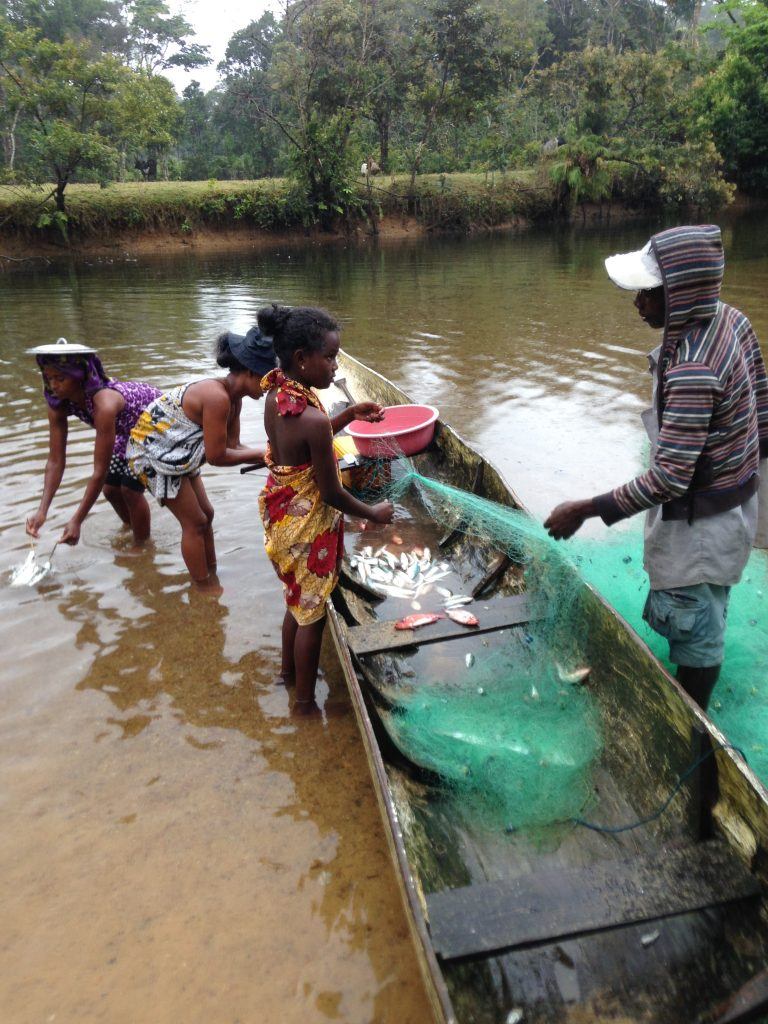 Through funding from the Wellcome Trust and from SESYNC, our project focuses on merging the fields of nutritional epidemiology, fisheries ecology, conservation biology, global change science, and resource economics to begin quantifying the nutritional importance of fisheries for different populations around the world. One of the centerpiece products of this effort will be an analytic framework and architecture that will allow decision-makers to calculate the health implications of different marine management strategies at a variety of scales from local to global. To perform this work, we have assembled a highly respected group of established specialists and emerging research leaders whose expertise have been rarely combined (e.g. epidemiology and fisheries biology). By modeling shifts in diets based on changes in access to fisheries, we can estimate per capita changes in fish consumption and calculate changes in the prevalence of risk for a variety of micronutrient deficiencies. Using this modeling approach, we can estimate shifts in burdens of disease for particular populations associated with either increased or decreased access to seafood in the diet.
Through funding from the Wellcome Trust and from SESYNC, our project focuses on merging the fields of nutritional epidemiology, fisheries ecology, conservation biology, global change science, and resource economics to begin quantifying the nutritional importance of fisheries for different populations around the world. One of the centerpiece products of this effort will be an analytic framework and architecture that will allow decision-makers to calculate the health implications of different marine management strategies at a variety of scales from local to global. To perform this work, we have assembled a highly respected group of established specialists and emerging research leaders whose expertise have been rarely combined (e.g. epidemiology and fisheries biology). By modeling shifts in diets based on changes in access to fisheries, we can estimate per capita changes in fish consumption and calculate changes in the prevalence of risk for a variety of micronutrient deficiencies. Using this modeling approach, we can estimate shifts in burdens of disease for particular populations associated with either increased or decreased access to seafood in the diet.
We have three primary objectives: 1) characterize global dietary intake of seafood and model the vulnerability of different populations to particular micronutrient deficiencies based on these intake patterns; 2) conduct scenario analyses, examining how different environmental changes might affect different fisheries and how those changes would alter nutrient intakes and risk of deficiencies for different populations; and 3) evaluate the effectiveness of policy tools of different marine management approaches in optimizing fisheries and human health (marine conservation, improved fishery quota systems, etc.).
- Golden, CD, Allison, EH, Cheung, WWL, Dey, MM, Halpern, BS, McCauley, DJ, Smith, M, Vaitla, B, Zeller, D, Myers, SS (2016). Fall in fish catch threatens human nutrition. Nature 534: 317-320.
- Golden, CD, Seto, KL, Chen, OL, Cheung, WWL, Dey, MM, Halpern, BS, McCauley, DJ, Gephart, JA, Myers, SS, Smith, M, Vaitla, B, Zeller, D, Allison, EH. 2017. Does Aquaculture Support the Needs of Nutritionally Vulnerable Countries? Frontiers in Marine Science 4 (159). doi: 10.3389/fmars.2017.00159
- Vaitla, B., D. Collar, MR Smith, SS Myers, BL Rice, and CD Golden. In press. Predicting nutrient content of ray-finned fishes using phylogenetic information. Nature Communications.
- D.J. McCauley, C. Jablonicky, E. H. Allison, C. D. Golden, F. H. Joyce, J. Mayorga, D. Kroodsma. 2018. Wealthy countries dominate industrial fishing. Science Advances 4, eaau2161.
- Golden, CD, A. Shapero, B. Vaitla, M.R. Smith, S.S. Myers, E. Stebbins, and J.A. Gephart. Impacts of hydropower development on fisheries and human nutrition in the Lower Mekong. 2019. Frontiers in Sustainable Food Systems. doi: 10.3389/fsufs.2019.00093



